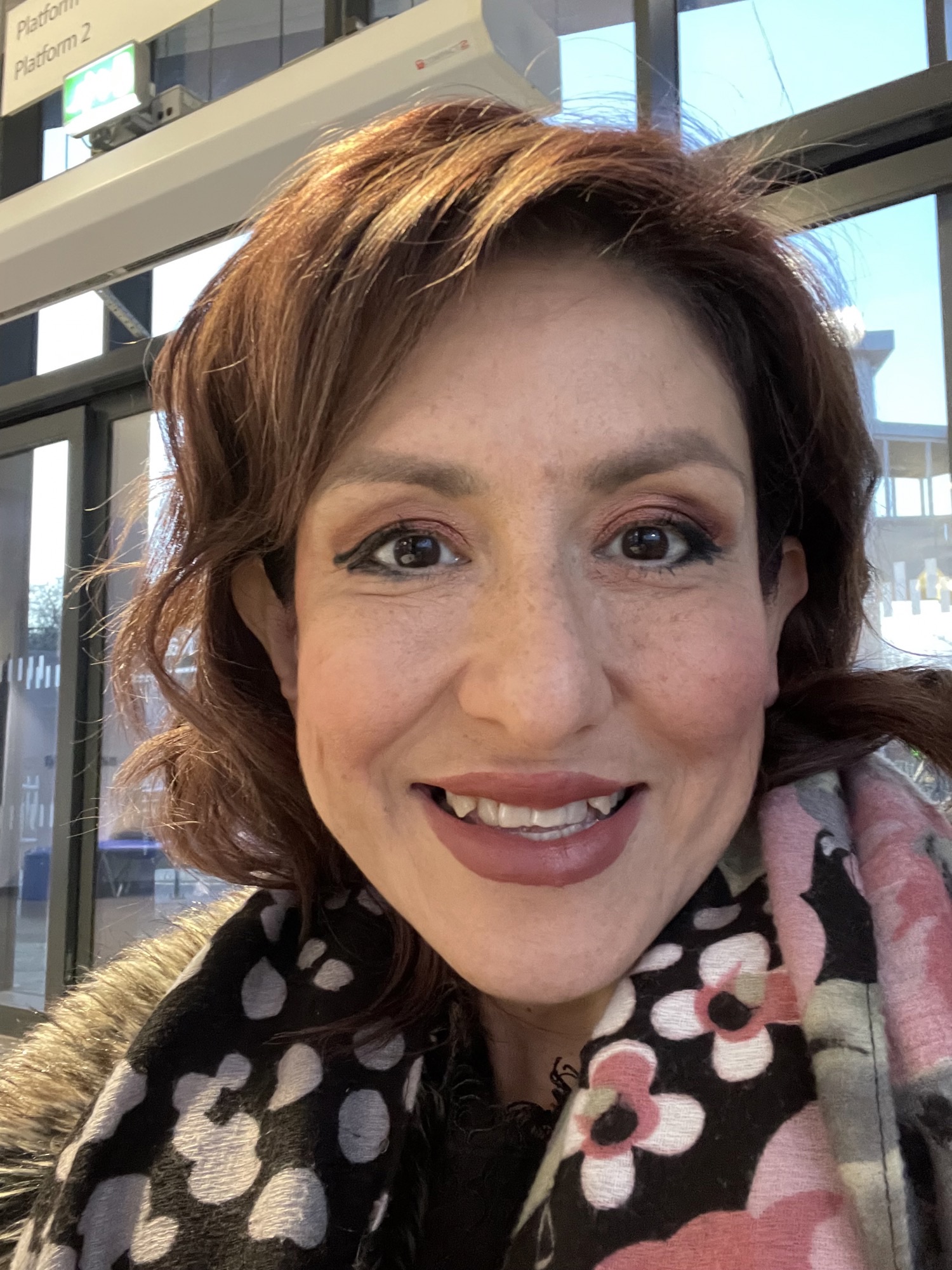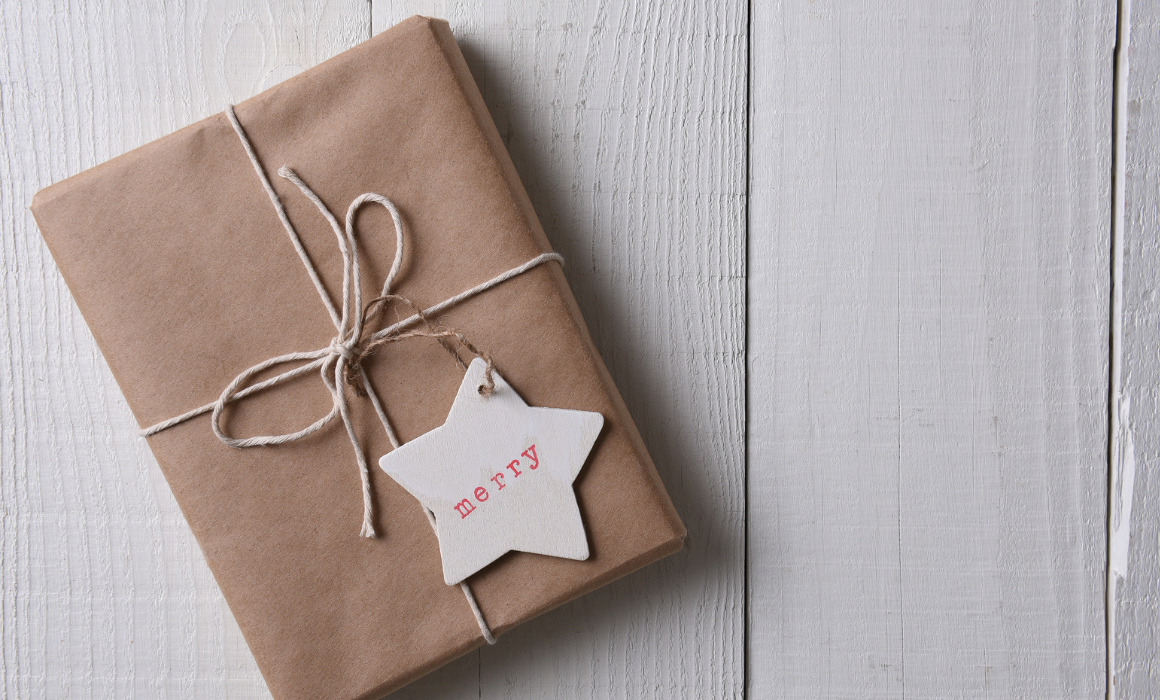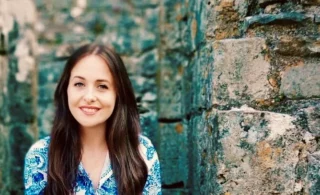
This guest article is by Nazanin Derakhshan, a Professor of Experimental Psychopathology and Founder and Director of the BRiC Centre (Building Resilience in Breast Cancer; briccentre.co.uk) at the University of Reading, UK. Professor Derakhshan shares here personal experience of Christmas with breast cancer, and also some tips based on her professional experience.
When we think of Christmas, we are reminded of the slushy streets, the melting snow and colourful lights. People rushing to buy presents, the hot chestnuts and the mulled wine. Children excited in anticipation of opening presents under the Christmas tree and the mince pies for Santa. Family and friends gathering for Christmas dinner. There may be a fire glowing. And what’s not to like about Christmas pudding.
This is how I remember Christmas, prior to my own diagnosis, almost ten years ago.
Since then, my Christmases have been a mixture of happiness and sadness, of pain and fatigue, of excitement and sorrow. I’ve found myself longing for the friends I’ve lost to cancer, thinking of their children and families. I feel grateful for being with mine, equally puzzled as to why and how I’m still here. I am reminded of the hospital appointments and fearing the worst for scan results while wrapping presents. Worried that my young daughter will be missing her mum while waiting anxiously for her to come home.
A change in perspective
We’ve heard it more than once, haven’t we, that cancer changes our perspective. This includes how we experience joyous and hectic times like Christmas. There are expectations to meet, people to see, food to prepare, presents to buy, and respects to pay. Our feelings can be mixed and complex: we may find it difficult to express how we are feeling and we may think that others don’t ‘get it’. We can be excited, but we may not find the energy and stamina in ourselves to meet expectations. We may feel overwhelmed and at times unable to cope. Through the hustle and bustle we may want to lie down or read quietly with a cup of tea and a book. Or simply be.
We may need some time alone, in solitude. This doesn’t mean that we don’t want to experience the laughter and joy or be happy for our loved ones. Equally, we may find ourselves fearing the loneliness and wanting to be closer to our families.
We are mindful that some of us can be diagnosed with cancer at this time of year and that others are going through treatment and feeling unwell. Some receive bad news, perhaps the treatment was unsuccessful. Others may receive good news with open hearts. Some of us are ‘recovering’ from treatment, others waiting anxiously for scan results.
And then there are those of us who fear this will be our last Christmas. We may be caring for a loved one with cancer during Christmas, which can also be draining. These situations we find ourselves in are not easy to deal with. In fact they require a lot of resilience on our part, and at times acceptance.
You are more resilient than you think you are
Resilience has many definitions but at the heart of it is flexibility and endurance: the ability by which we adapt to change but not surrender to it. You might want to think of resilience as the ability to bounce forward (and if necessary, backwards). We are not the same person we used to be prior to diagnosis, we are changing every day. The good news is that our brain has the amazing ability to make us the versatile people we need to be in difficult times. This flexibility can help us cope with the challenges we face, more effectively.
While we may find our emotions challenging, it is important that we respect how we feel and are mindful of our emotions so that we can make the right decisions in challenging times.
Four practical tips to coping with breast cancer at Christmas
There is no right or wrong way to cope but here are some tips that I have found particularly useful:
- Delegate. You may be undergoing treatment, or have hospital visits, or you may be caring for a loved one with cancer who needs your help. Many of us, post-active treatment, can feel fatigued and burned out when we take on too much. Instead of trying to handle everything yourself, ask for help. Delegate. It is not a weakness to ask for help or delegate chores to others. In fact it is a sign of resilience that you can take back some control and not get overshadowed or overwhelmed by it all.
- Keep a little time for your needs. This may be the most nurturing present you give yourself, and one that is unfortunately not given to us by others. Whatever situation you are in, know that you can disengage even for a few minutes. Remove yourself from the situation and do something that is for you. You may want to meditate, read a book, watch a clip, listen to some music, go for a short walk, call or text a friend or simply flop on the bed. The time and energy we save for ourselves can make the experience of Christmas more fruitful and joyous.
- Lower expectations. It’s OK if things are not perfect or as you had hoped them to be, or that others are not as understanding as you want them to be. It’s OK if you are not multi-tasking or managing to juggle everything at once. To compare yourself against your ideal self may not be helpful and can be counterproductive. Accept yourself as you are, and you will make the best of the situation you find yourself in.
- Communicate. Setting boundaries can be helpful. You can communicate your needs and feelings and if it’s getting too demanding you can limit your involvement. Others may, at times, not have a realistic understanding of your situation, but you may be surprised at how compassionate they can be once you let them in on how you feel.
We have more tips and advice around Christmas with breast cancer, here.
Future Dreams hold a range of support groups, classes, workshops and events to help you and your carers during your breast cancer diagnosis. These are held both online and in person at the London-based Future Dreams House. To see what’s on offer and to book your place, see here.
To return to the homepage of our Information Hub, click here where you can access more helpful information, practical advice, personal stories and more.

Nazanin Derakhshan is a Professor of Experimental Psychopathology and Founder and Director of the BRiC Centre (Building Resilience in Breast Cancer; briccentre.co.uk) at the University of Reading, UK.
December 2023
The information and content provided in all guest articles is intended for information and educational purposes only and is not intended to substitute for professional medical advice. It is important that all personalised care decisions should be made by your medical team. Please contact your medical team for advice on anything covered in this article and/or in relation to your personal situation. Please note that unless otherwise stated, Future Dreams has no affiliation to the guest author of this article and he/she/they have not been paid to write this article. There may be alternative options/products/information available which we encourage you to research when making decisions about treatment and support. The content of this article was created by Professor Nazanin Derkshan and we accept no responsibility for the accuracy or otherwise of the contents of this article.
Share

Support awareness research
Donate to those touched by BREAST cancer
Sylvie and Danielle began Future Dreams with just £100 in 2008. They believed nobody should face breast cancer alone. Their legacy lives on in Future Dreams House. We couldn’t continue to fund support services for those touched by breast cancer, raise awareness of breast cancer and promote early diagnosis and advance research into secondary breast cancer without your help. Please consider partnering with us or making a donation.



